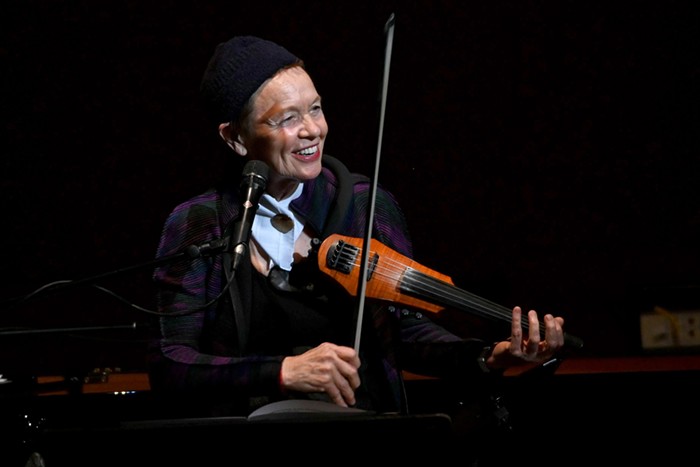I had that dream again. Jens Lekman—the dry-witted Swedish singing sensation, the most relevant of modern-day pop musicians—live in Vegas, recklessly swinging his hips and his mic, blinding the audience with a sequined jacket that would make Liberace blush, and all of this on a stage with a floor-to-ceiling J-E-N-S neon backdrop. I assume this was a dream because in the past few years Lekman has created some of the most wildly vivid and creative pop songs set to music, a large portion of which contain samples—some cleared, some not—ranging from funk horn blasts to frantic timpani rolls and thumping dance beats. Or maybe the dream made its appearance because I fell asleep with his latest full-length, Night Falls over Kortedala, whispering to me from a speaker mere inches from where I laid my head.
Yet for Lekman to be in Vegas—if only in my dreams—there would be an assumption that his music is safe gimmickry, showmanship over craftsmanship, or at the very least, a musical sleight-of-hand trick. But Jens Lekman is not the Swedish Tom Jones, or worse, a Nordic Robert Goulet. He is only worthy of Vegas in that his persona is so huge, and so baffling, that it belongs not in the humble rock clubs, but someplace larger. Perhaps someplace with a strip to cruise, a sea of flashing lights, and possibly a low-priced king crab leg buffet and $3 steaks.
Reason being is that Lekman's vintage pop music is so uncontainably gigantic, and his orchestration rivals even the grandest of Phil Spector's romanticized "Little Symphonies for the Kids." His deadpan voice effortlessly keeps pace with the frantic instrumentation and, at times, he sounds like a flawless mix between the old front and the new guard, like Burt Bacharach fronting Australian DJ collective the Avalanches. Lekman even spices up his live shows with a cover of Paul Simon's "You Can Call Me Al" that is so stark, and so pure, that it will cleanse your mind of those haunting images of a goofy, lip-synching Chevy Chase.
"I've always hated that video, but Graceland is one of my favorite records," says Lekman. "What I have been doing when I cover the song is to cut out the chorus and just sing the verses."
While his personality and songs are so massive, Lekman's lyrics fall on the other end of the spectrum. His words are the painfully earnest tales of a humble-voiced Swede who travels the globe playing music, yet returns to his simple Kortedala neighborhood (in Gothenburg, the country's second largest city), which acts as both his home and the backdrop for the lion's share of his songs.
"For this record I wanted to write about the world, my experiences and my inspirations," says Lekman. "I wanted the whole world to be a part of my music, but it's the whole taboo about songwriters writing about things that happen to them on the road. Writing about touring is next to writing songs about songwriting."
So instead of his globetrotting adventures on, and off, stage, Lekman sings about his lonesome late-night walks in the suburbs, his close friends, and of course, the rural drive-in bingo—where patrons play bingo while sitting alone in their cars, honking the horn when they win. Says Lekman, "It's not a very social game. You sit in your car and you play. Usually you win a pig with a little ribbon around its neck."
I couldn't even dream something that weird.


















